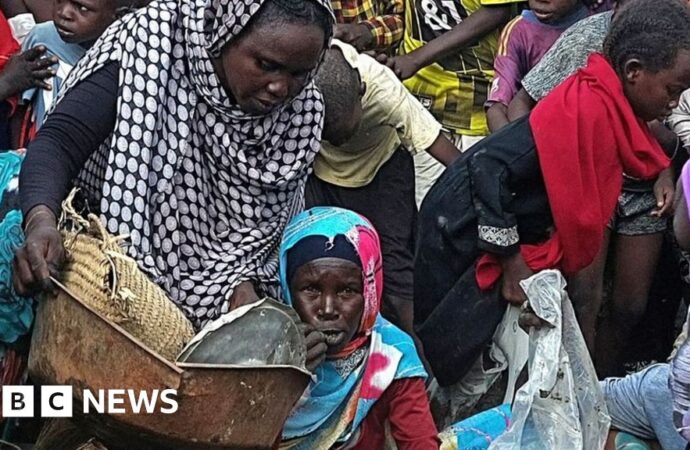The recent seizure of Nyala by the Rapid Support Forces (RSF) in Sudan’s Darfur region highlights the devastating impact of the ongoing conflict on the environment and the urgent need for environmental protection in conflict zones.
The destruction of hospitals and the displacement of over 670,000 people in Nyala due to the fighting in Sudan’s conflict have severe environmental consequences.
The capture of Nyala by the RSF, a paramilitary group accused of targeting non-Arabic groups, has led to looting and storming of civilian houses, further exacerbating the environmental crisis in the city.
The RSF’s actions have resulted in the destruction of hospitals, leaving the city’s residents without access to vital healthcare services. This not only endangers human lives but also contributes to the degradation of the local environment, as medical waste and hazardous materials may not be properly disposed of.
Additionally, the displacement of such a large number of people has put a strain on the surrounding environment. The influx of displaced individuals into new areas can lead to deforestation, soil erosion, and increased pressure on natural resources as people struggle to find shelter, food, and water.
The situation in Nyala is just one example of the environmental impact of conflicts worldwide. War and violence often result in the destruction of ecosystems, pollution, and the depletion of natural resources. This not only hinders the recovery and development of affected regions but also exacerbates existing environmental challenges.
It is crucial that environmental protection be prioritized in conflict zones. International organizations and governments should work together to ensure that environmental considerations are integrated into peacebuilding efforts, including the restoration of damaged ecosystems, the promotion of sustainable practices, and the provision of environmental education and awareness.
By addressing the environmental consequences of conflicts, we can contribute to the long-term stability and well-being of affected communities and help prevent future conflicts driven by resource scarcity and environmental degradation.









